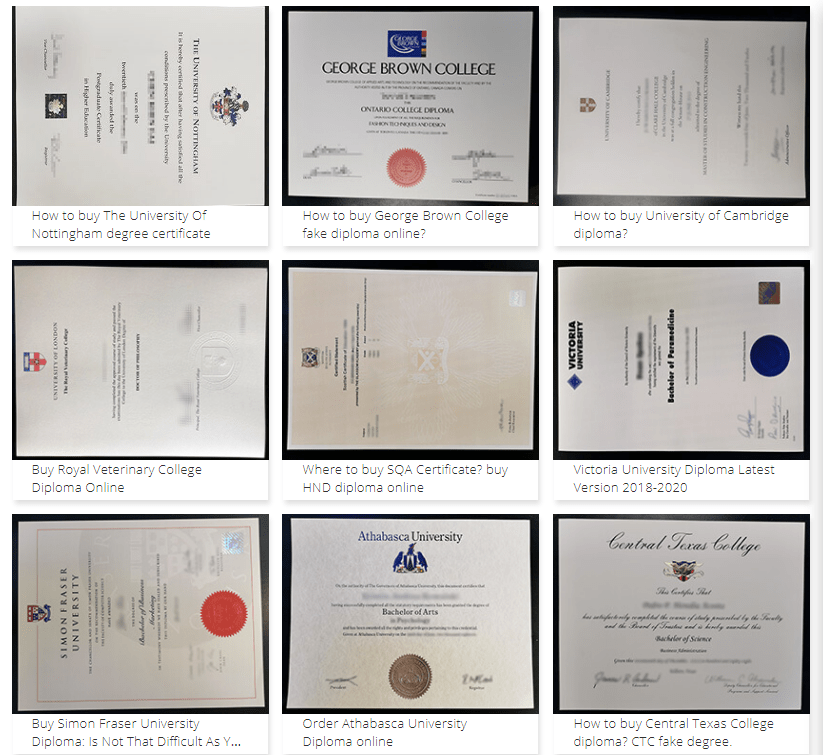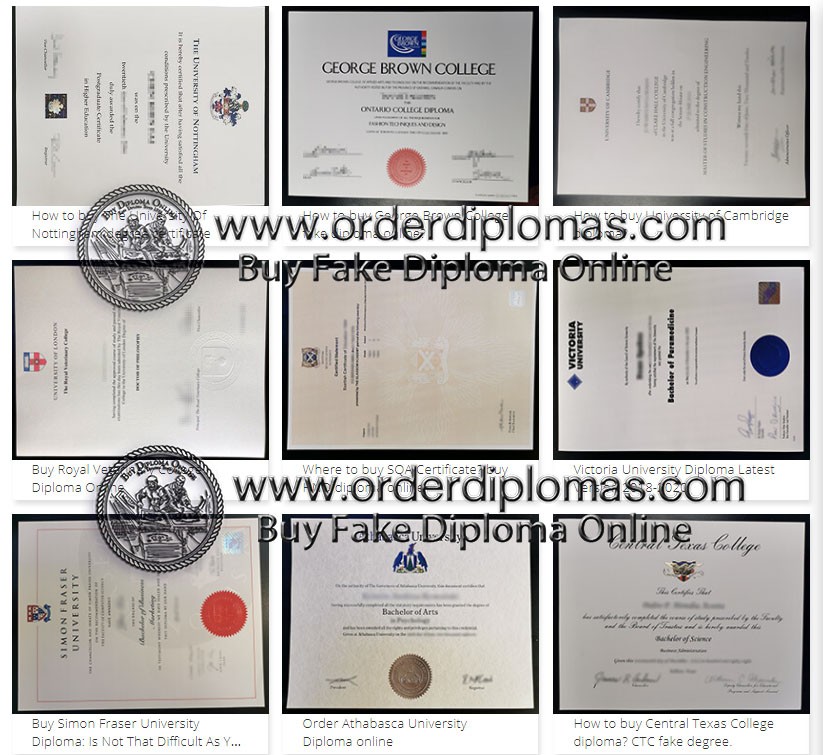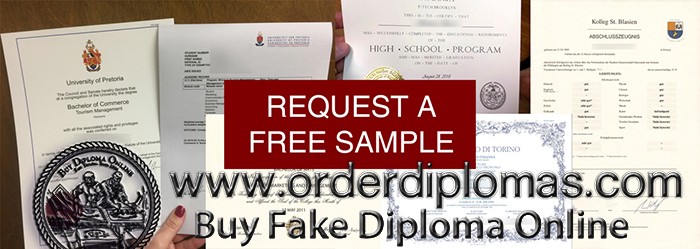When hiring for a position, many employers look for candidates who have received a certain amount of training or education in that career field. You can receive this type of training by completing a certificate or degree program. Whether you choose to earn a certificate or a degree depends on your resources and the type of job you want to pursue. In this article, we will explain the difference between the two so you can determine which one will benefit you the most. Order fake degree.

How to buy fake diploma certificates?Where to buy fake diploma certificates,How To Get Online Fake Diploma Certificate?
What is a certificate?
A certificate is a document stating you have completed a certain amount of training in preparation for a specific job. You can earn a certificate by taking courses at a community college, technical school or vocational school. Most certificate programs prepare people for technical or skills-based jobs, such as:
Earning a certificate can help you get a job in your desired field or advance in your career. You might also earn a certificate to prepare for an associate or bachelor’s degree or to supplement your current degree. Some jobs and states require a particular certification to get hired in that field. How to buy a fake certificate?
What is a degree?
Associate degree
Bachelor’s degree
Master’s degree
Doctoral degree
Many jobs require a degree in their specified field to get hired, including:
Having a degree can also qualify you for more advanced or higher-paying positions.

buy fake degree. buy fake diploma, buy fake certificate.
Certificate vs. degree: the main differences
The difference between certificate and degree programs typically involves the time and cost to earn them. They also differ in the number of courses you must take and the amount of knowledge you gain.
Time commitment
Certificates take less time to earn than degrees. You can typically get a certificate within a few months to two years, depending on the field. Associate degrees typically take two years, bachelor’s degrees take four years, master’s degrees take an additional one to two years and doctoral degrees take at least an additional two years to earn. Some degree programs do offer summer school or accelerated courses that allow you to graduate a year sooner.
Requirements
Nearly all degree programs require students to have first earned a high school diploma. While many certificate programs require a high school diploma as well, some do not. These include certifications for truck driving, restaurant management, mechanic work, carpentry and more. buy fake degree.
If you meet the basic requirements for a certificate, which often include earning a high school diploma, you can enroll in the program of your choice. To get accepted into a bachelor’s program, however, you must apply for and be accepted by the college or university. The admissions office will decide whether to accept your application based on your grades, standardized test scores and extracurricular activities.
Similarly, you must first earn a bachelor’s degree and have passed a standardized test like the Graduate Record Examination before you can apply for a master’s or doctoral degree program. Some doctoral degree programs require a master’s, while others only require a bachelor’s.
Coursework
Degrees typically provide individuals with a greater depth of knowledge than certificates. Certificate programs usually focus on teaching students specific and practical skills related to that career field. Someone in a radiologic technician certification program, for instance, is only going to learn about diagnostic imaging. Degrees provide a general education in several key subjects and require students to complete a certain number of classes or credits in subjects such as math, English and science. Degrees include more courses than certificates, which is one of the reasons degrees take longer to earn.

buy fake diplomas
How to choose between a certificate and a degree
Base your decision to pursue a certificate vs. degree on your career goals, time and resources. When choosing between the two, consider the following questions:
1. Determine how quickly you need to earn your credentials
If you simply need to learn the practical skills necessary for a certain job and want to learn them quickly, you might choose to earn a certificate. If you have several years to dedicate to your education, you might pursue a degree.
2. Think about balancing work and school
If you are currently working full-time but want to earn a credential to improve your job opportunities and earning potential, you might choose a certificate. You can continue working in your current position as a veterinary assistant, for instance, while earning your vet assistant certificate from a community college during the evenings or weekends. How to buy a fake diploma?
3. Consider the field you want to work in
If you are passionate about styling hair or skilled at fixing HVAC systems, you can get a job faster and with less expense by earning your certificate in that field than by applying for a degree. If you want to be a doctor or a lawyer, however, you will need to earn one or more degrees to get hired.
4. Plan how far you want to advance in your career
Whether you pursue a certificate or a degree might depend on your education and career goals. A degree can often provide you with more opportunities and higher salaries than a certificate. You might also earn a certificate to give you the foundation and prerequisites needed to get a degree. For instance, you might first complete a computer coding certification program to prepare you for a degree in computer science.
5. Consider where you are in your career currently
If you are looking for an entry-level job, you might benefit from a certificate. For instance, if you want to be a chef, you can enter the workforce right away after earning a certificate in culinary arts. You always have the option to earn a culinary degree in the future. If you have work experience and are interested in a management position, you might benefit from a degree, which is a requirement for many upper-level positions.

 USA Diplomas
USA Diplomas Canada Diplomas
Canada Diplomas UK Diplomas
UK Diplomas Australia Diplomas
Australia Diplomas Germany Diplomas
Germany Diplomas Malaysia Diplomas
Malaysia Diplomas Singapore Diplomas
Singapore Diplomas Other countries
Other countries Transcript-Form.xlsx
Transcript-Form.xlsx
